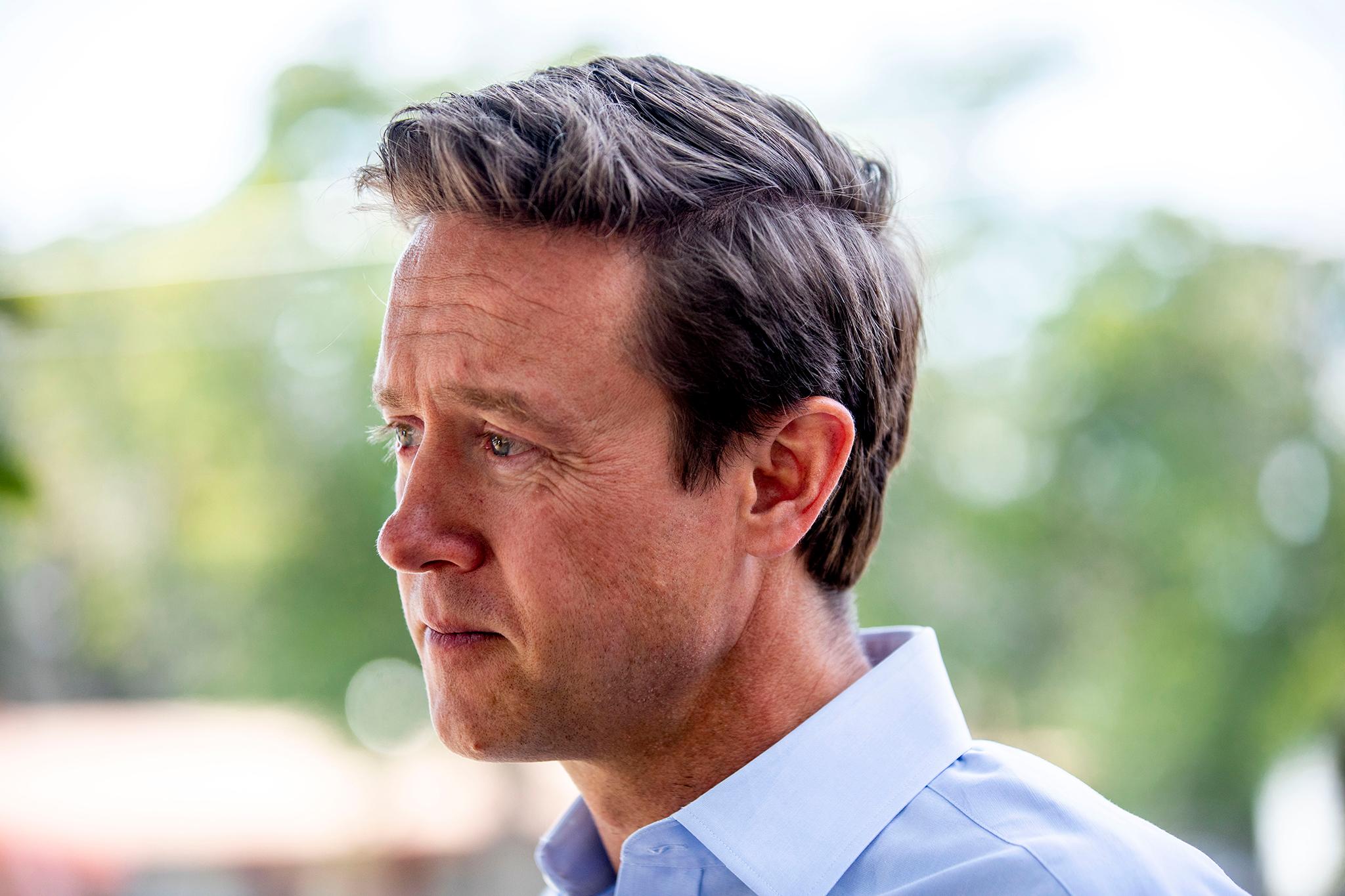Denver mayoral candidate and former state senator Mike Johnston says he can end homelessness in his first term.
He blames the crisis on three things: "the lack of affordable housing, the absence of available mental health support, and an explosion in the severity of addictive drugs," according to Johnston's plan, which he dropped Thursday.
"People like to make often mythical or unsupported promises," he told Denverite. And, he claims, his homelessness plan isn't that.
He says he has a way to fund it, and data that proves his ideas will be successful.
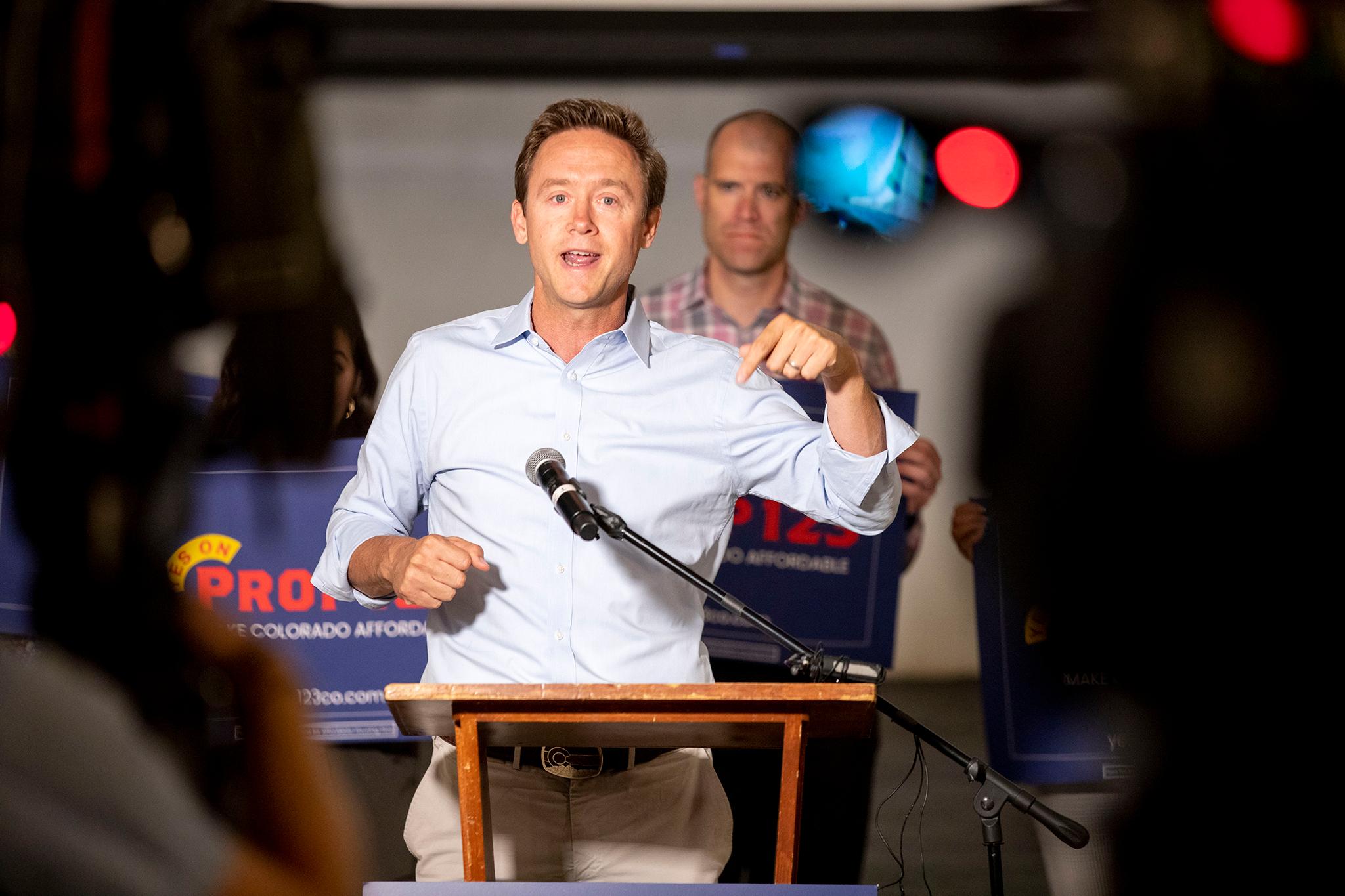
Here's how Johnston said he'll end homelessness in four years.
Over four years the city will build 20 "micro-communities." These will include a mix of tiny homes on city owned land and converted hotels, providing 1,400 units where people can live. Some residents might stay for the long term, while others would be transitioned into more permanent housing options, opening up space for other people experiencing homelessness.
The housing would be funded with $138 million in one-time federal stimulus funding.
Entire encampments would be moved into any building or community at a time, ensuring social structures of support remain intact. Each micro community would offer wrap-around services, from mental health and addiction treatment to workforce training.
According to the plan, "funding for wrap-around services will come from the City's existing Homelessness Resolution Fund" as well as money Denver forecasts will come from Proposition 123.
"We will also use the $50 million in federal funds that Denver recently received to construct a regional navigation campus that provides wraparound services to address homelessness," the plan stated.
He points to the Colorado Coalition for the Homeless and their permanent supportive housing work as proof that the strategy would work.
His administration would recruit nonprofits, churches and civic groups to lend support and resources, giving the community a role in the solution.
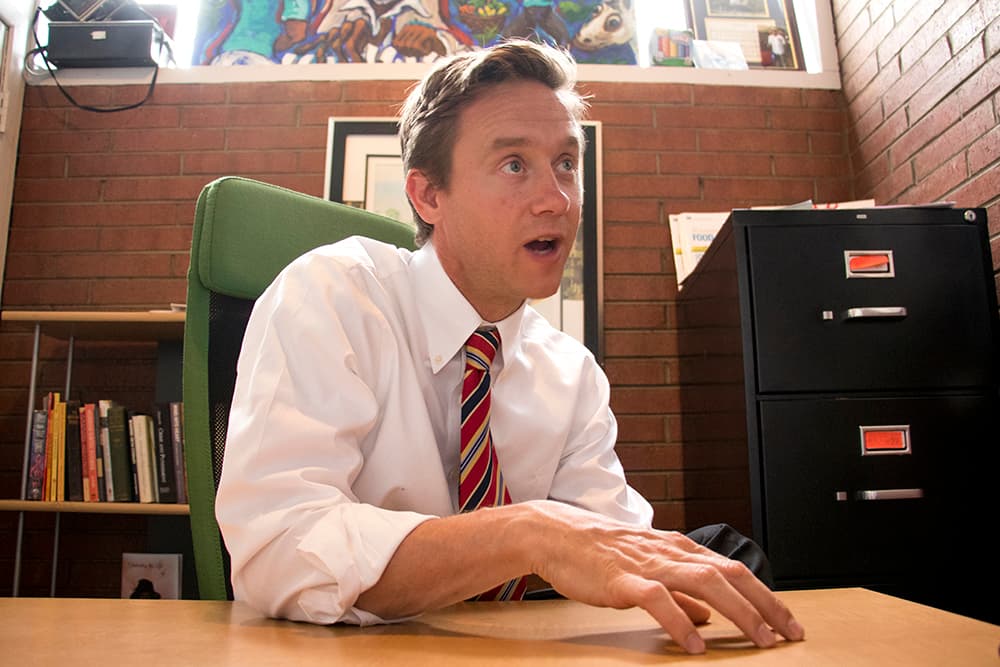
Johnston pledges that he would "own the problem" and take feedback from residents, ensuring they had one number to call to make complaints. He would also hire a "senior advisor" focused specifically on homelessness -- a plan not so different Hancock's and Hickenlooper's administrations who had a direct admin addressing the issue. Bennie Milliner, who served in that role for five years, was sidelined in 2017.
Under Hancock, much of the work of Denver's Road Home was incorporated into the current Department of Housing Stability. That department looks at housing issues as a whole. The decision to fold homelessness services into a larger department was made after the administration dissolved Denver's Road Home, a program the Denver Auditor claimed had "failed."
Johnston pledged to enforce the urban camping ban when people refused to accept city services. That's the policy in which police pass out tickets to unhoused residents and occasionally make arrests.
In doing so, Johnston said he would also expand diversionary programs to ensure more people, facing enforcement efforts, accept treatment for addiction and mental health issues.
The camping ban is a policy his opponent Kelly Brough recently said hasn't worked, and she would end -- though she would still ban camping.
Here's how Brough explained that to Denverite: "I think what you do is, we tell people: 'you can't camp,' and we have options," Brough told Denverite. "We're gonna move you to the shelter, the house ... people hear, 'if you're not sweeping, then you're allowing camping.' No, I'm not."
Finally, Johnston's administration would fund eviction defense and rapid rehousing programs designed to keep housing-insecure people in homes. Those are issues he's worked on at the Statehouse and in his role as head of Gary Community Ventures.
He would do all of this, as mayor, by coordinating every city department to take action on homelessness. That coordination is part of his unique approach, he said, though coordinating thousands of people and multiple departments is just the job of the mayor.
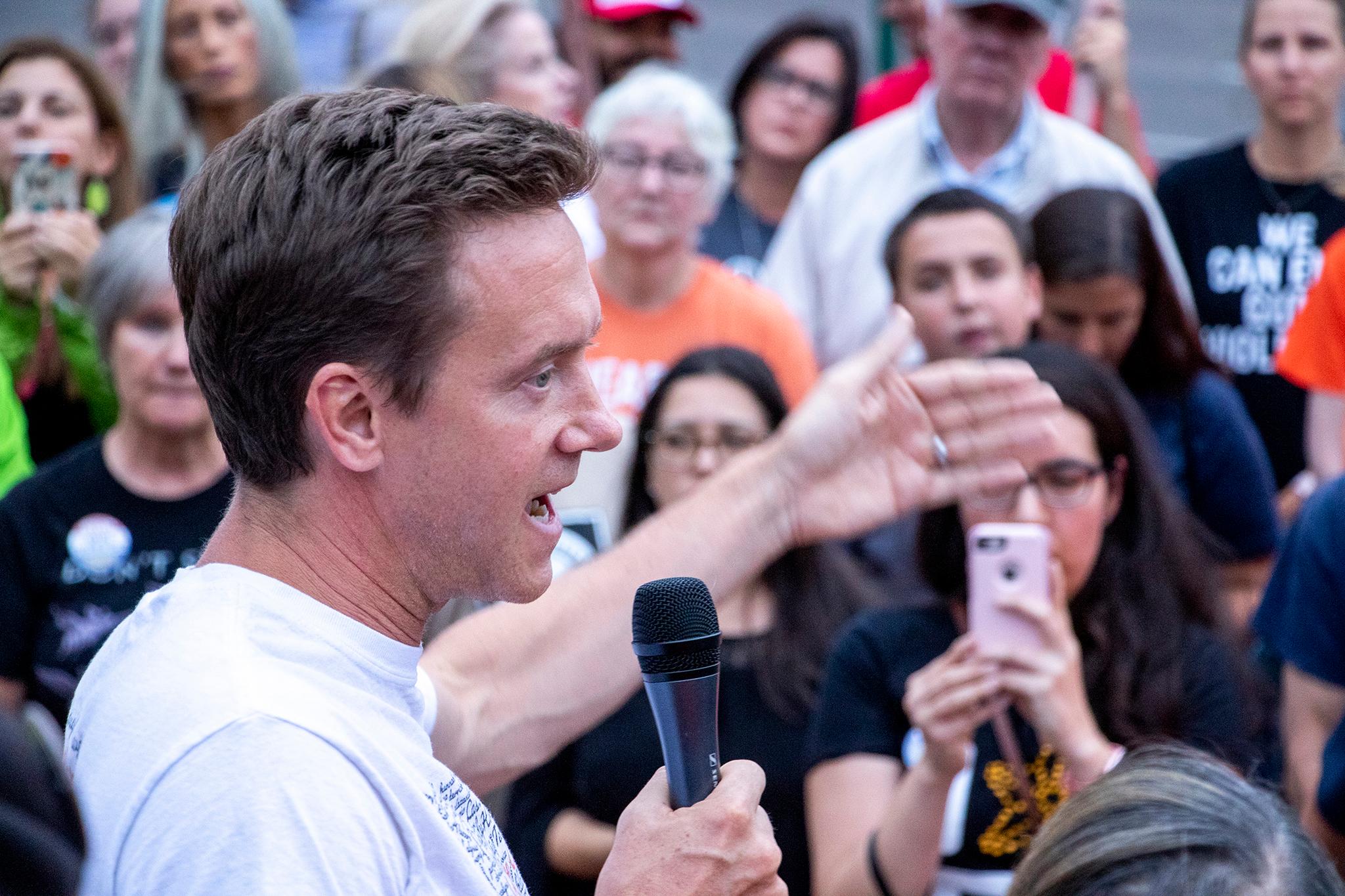
Do the numbers in the plan work? He says so. But it's unclear how.
Johnston's goal to build 1,400 micro-units over four years is based on the notion that more than 1,300 people are on the streets of Denver on any given night.
According to the Metro Denver Homeless Initiative's Point-in-Time count, on January 24, 2022, in Denver there were 4,794 people experiencing homelessness, and 1,313 were unsheltered. One in three of those people were experiencing homelessness for the first time.
But in the seven-county Denver metro area, 6,884 people were experiencing homelessness that night and 2,078 of them were living without shelter. For most of those individuals, Denver is a short walk or bus ride away.
The point-in-time numbers are based in just one of 365 nights. The total number of people experiencing homelessness in a year is much higher. Not every person living outside is found and counted.
"While the region was able to locate and count 6,884 individuals on a single night experiencing homelessness, the HMIS allows us to see this number is closer to 31,000 throughout the course of the year," said Jamie Rife, the Metro Denver Homeless Initiative's executive director, in a statement. "This data highlights the dynamic nature of homelessness and the importance of real-time data to allow the region to coordinate effectively and allocate resources efficiently."
Yet, Johnston said, many of the people living on the streets are chronically homeless, and the policy targets them. The goal isn't to provide micro-housing to people living in shelters like the Denver Rescue Mission or Crossroads.
"By addressing that 1,300 or 1,400 that are there, you buy yourself the capacity to rely on the other parts of the system that are doing good work to continue to serve those that are more itinerant," he said. "But this unsheltered chronic population is the one that has been most challenging and the most visible."
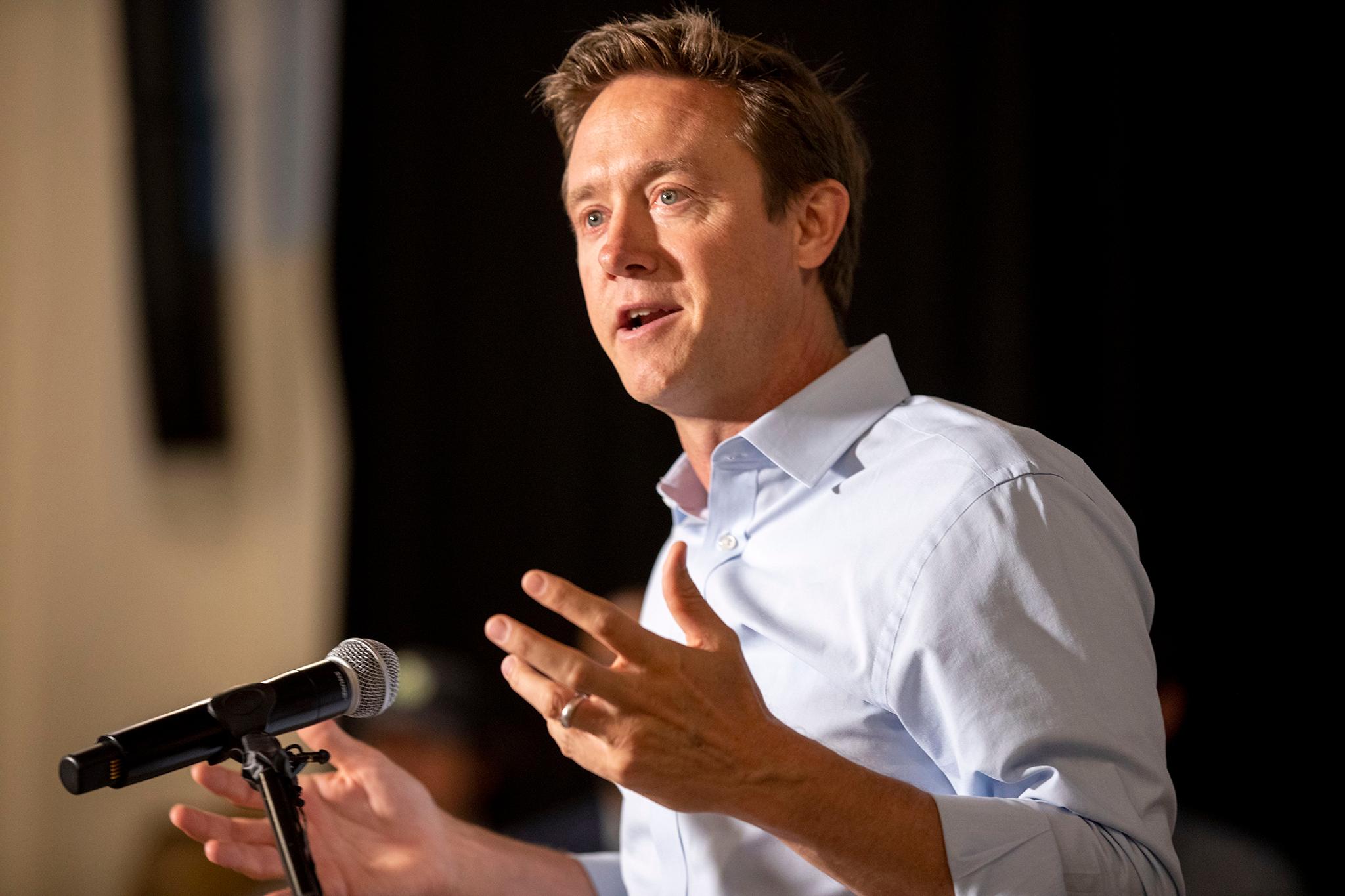
Longtime Denver homeless advocate Terese Howard of the Housekeys Action Network said she admires Johnston's ambitions and urgency, but the numbers don't work.
"He's using a 1,400 number. That's not going to house our houseless population," Howard said. "There's going to be hundreds if not thousands of folks in Denver without housing."
Howard was instrumental in the creation of tiny home villages in Denver. Yet she doesn't see them as an ideal solution, based on a survey from Housekeys Action Network of more than 800 people experiencing homelessness who addressed where they're hoping to live.
"Tiny homes are not housing," Howard said. "As somebody who literally created the Tiny Home Villages here in Denver, I'm now not the biggest fan of looking at that as a solution. It's great when it's a DIY thing you can do to quickly have some decent housing, but it's not the housing people want long term."
Johnston's $25,000 price tag per unit doesn't have the ongoing support people will need, Howard said.
"And He's overestimating how quickly the city will be able to build them," Howard said.
Howard also said Johnston's plan -- which emphasizes giving people social services and putting people from similar backgrounds into small places where they don't want to live -- is misguided.
"Clearly, his orientation is that folks need to be controlled," Howard said. "They need to be warehoused. They need to be put through a 'service environment.'"
No doubt, Johnston's urgent. But why create such a hard-to-reach goal?
Johnston points to his executive experience and notes that big goals are only reached when they're measurable.
If he wins the race and encampments still exist four years in, he will have failed. Criticism for that will be impossible to dodge.
But that's not an option, as he tells it.
"I've been a CEO," he said. "I've been a school principal. When you want to accomplish big things, you got to set clear goals and you gotta inspire people to get there."
The city has a moral obligation to find a solution, he said. "Denver has always been a place that believes you can fix the unfixable."
Is Johnston concerned that guaranteed housing and better services would draw more unhoused people to Denver?
Nope.
"I don't think we have any demonstrated evidence that there is a huge magnet effect once you provide meaningful services," he said.
Then again, there are a lot of unknowns. One known: Having access to affordable housing matters.
"No major city has really done this at scale, because the challenge is providing enough of the actual units that you need to be able to move people into permanent supportive housing," Johnston said.
Johnston acknowledged that people will likely always face homelessness, but his plans to have strategies in place to make that short-term.
"Will there still be people in 2026 to get evicted from an apartment or have a bad divorce that goes rough, and they don't have any place to stay, and they end up on the streets?" he asked. "For sure.
"Our goal is to make that short-term and rare," he said. "So that what we have is a really good system to catch people on whatever their needs are, immediately connect them to services and make sure those services are linked to actual housing units that can put a roof over your head, a bed underneath your body and some food on your plate."
Is there a precedent that this sort of rapid timeline can work?
Other mayors have made similar -- if less ambitious claims. None have worked. Though failing hasn't particularly backfired for those politicians' careers.
Prime example: Geologist turned brewery owner John Hickenlooper launched Denver's Road Home. That was his 10-year plan to end homelessness when he was mayor. He and current Mayor Michael Hancock failed to do so.

"No one is more disappointed than I am -- or all the other mayors, right?" Hickenlooper told Colorado Matters in 2015, when he was governor. "There were 280 cities across the United States that committed to 10-year plans to end homelessness -- and we always knew that we weren't going to end homelessness. Right? That's a marketing effort to get everyone's attention to say, 'Alright, Let's really work on this.'"
Now Hickenlooper's gone to Washington to serve as Senator, and back home, more people live on the streets than when he launched his plan.
In his first term, Mayor Michael Hancock created the urban camping ban, a signature policy. Despite a heated fight over the ban that effectively criminalized unsheltered homelessness, it narrowly passed -- even with opposition from multiple council members including current mayoral candidate Debbie Ortega.
In the decade that followed, police handed out few tickets, meanwhile predictions that the ban would lead to mass arrests didn't come true.
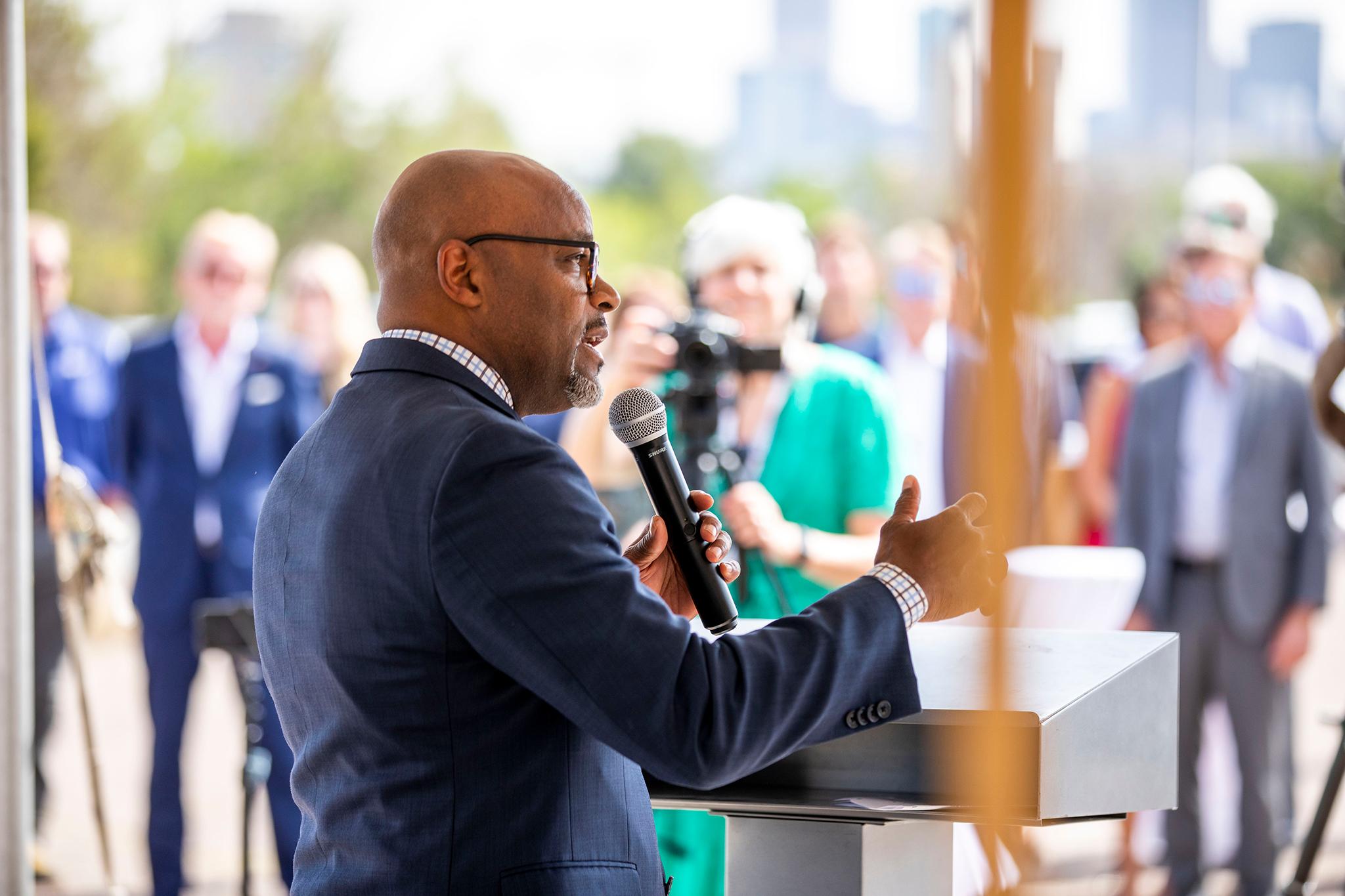
But predictions that unsheltered homelessness would spread across the city and region, driving people away from social services and contact with outreach workers, did occur, according to John Parvensky, the longtime head of the Colorado Coalition for the Homeless. And while tickets have been rare, sweeps from the Department of Public Health and Environment have become a regular feature of life in Denver. So have encampments.
Unsheltered homelessness has spiked -- even as the Hancock administration has unleashed multi-agency response to address homelessness that has included sanctioned camping sites, public-private partnerships, hotel conversions, the camping ban and more.
What's Johnston's assessment of the Hancock administration's efforts on homelessness?
"What we found is there are a lot of nuggets of good ideas that have worked in different locations," Johnston said. He commends the city's conversion of hotels to housing and support of safe open spaces and tiny home villages. "What is required now is to coordinate all of these strategies together into one clear path."

